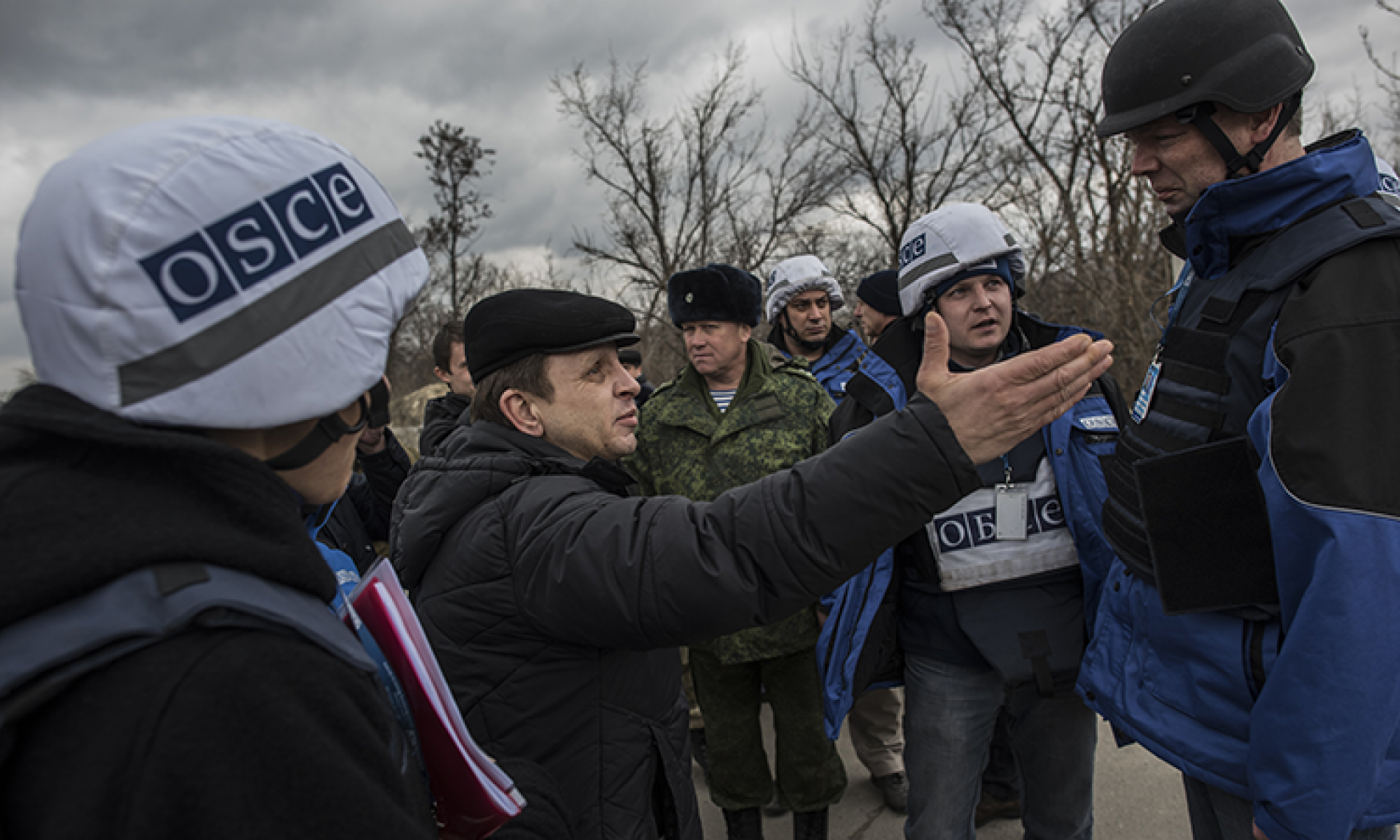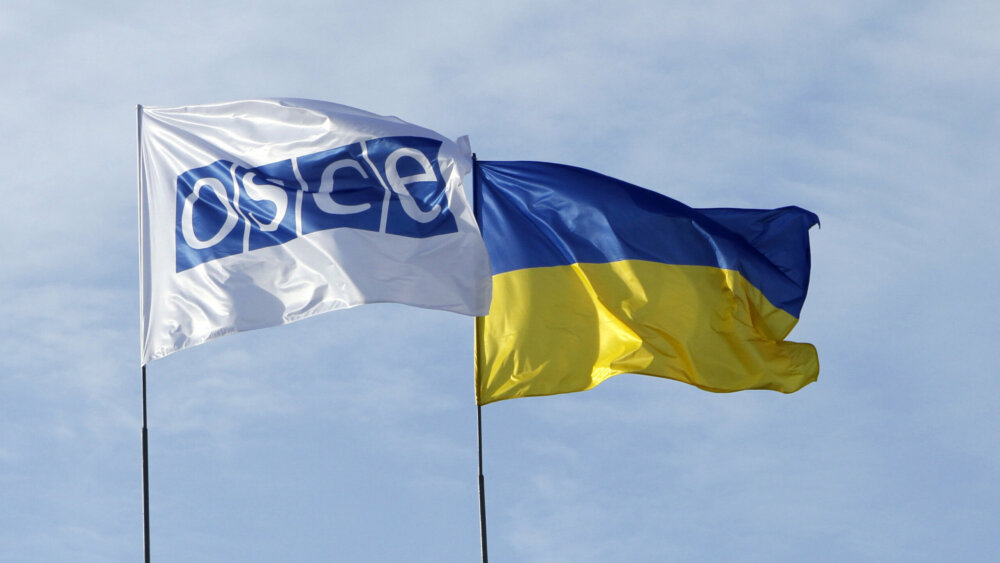Photo c/o: U.S. Mission to the OSCE

Comprehensive Security in a Conflict Environment
Abstract
For the past five years, the OSCE Special Monitoring Mission has been implementing its mandate, partially in an environment of ongoing violence. This article describes ways in which the conflict continues to impact the lives of civilians and describes the humanitarian-security nexus in the Ukrainian conflict. As well, the article draws conclusions, which contributions an international monitoring mission can make to mitigate the human cost of the conflict and pursue a comprehensive concept of security and to prevention, even while operating under the conditions of an ongoing conflict.
In March 2017, the authors published an article focusing on the role of the OSCE Special Monitoring Mission (SMM) to Ukraine as an instrument of comprehensive security, including conflict prevention.1 In its conclusion, a number of lessons learned were identified. Amongst those was the recommendation that “a careful consideration of the expectations and needs of the people on the ground are vital for both conflict management and prevention efforts.”
It continued: “A decisive humanitarian response by the international community to any conflict is not only required by international standards and commitments, but it also has a de-escalating impact at every stage of the conflict cycle.”
The current article will reflect on this observation, also in light of new literature.2 It will attempt to describe in more detail how a monitoring Mission such as the SMM, with a mandate focused on “gather(ing) information and report(ing) on the security situation in the area of operation”3 can play its part in a comprehensive crisis response, where careful consideration of the needs of people will reduce the potential for further conflict.
The purpose of the SMM is to work towards the security and stability of Ukraine and to support and facilitate the implementation of the Minsk agreements in a volatile and unpredictable environment. In this context, the need for a comprehensive view of security, which includes the protection of civilians, has already been enshrined in the Helsinki Decalogue,4 where it has been recognized that humanitarian improvements, respect for human rights and the rule of law on the one side, and increased security in the military sphere on the other are mutually reinforcing concepts.
This humanitarian-security nexus is not only crucial in the context of conflict management and resolution; it also plays an important role for prevention. The current OSCE Chairperson-in-Office, Foreign Minister of Slovakia, Miroslav Lajčák, has in this context said that “if we don’t put our ears to the ground, we will not hear the tremors which tell us that trouble is ahead.” 5
“Putting our ears to the ground” in the context of the work of the SMM means maintaining a focus on the people, recognising their basic needs and reporting about how the conflict affects their daily lives. It means projecting stability and a culture of peace in the context of the comprehensive security framework of the OSCE.
This article answers several questions: what are the main humanitarian consequences of the crisis in and around Ukraine and who are the most vulnerable groups? In which areas, related to human rights, the humanitarian sphere and the rule of law, can a large international stabilization mission like the SMM be most useful in the context of the conflict?



Comments
* Your email address will not be published